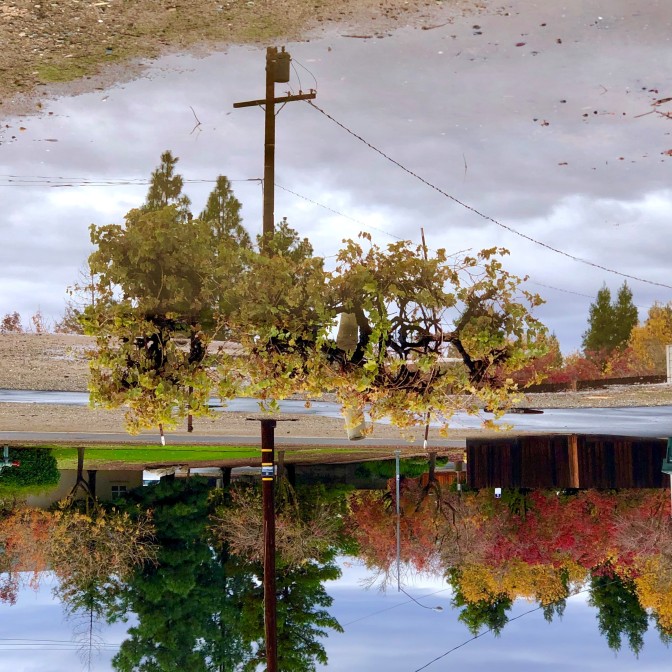
We will explore how echoes, clouds, dreaminess, supernaturalism, religion and the psychedelic state all relate. Why are clouds considered surreal and even used as artistic tools in sci-fi and fantasy? Why do we use reverberation to induce dreaminess in film and music? What environmental conditions elicit sober psychedelia? Why do psychedelics feel supernatural and what is the connection to religion? These are all questions that will be explored in this article.
While attending a lecture by the awesome Andres of Qualia Research Institute and Qualia Computing, there was a statement that drew my curiosity out. Andres said that music is often very impactful based on the reverberation or echoeyness of the sound. He stated that it often wasn’t the melody that impacts us so intensely, but these echo qualities. This instantly reminded me of the way trance music heavily capitalizes on these reverberation and delay effects. Reverberation can often bring a dream-like quality to the music or even movies. Memories of a time in which my friend rejected trance music because it sounded too much like Christian or religious music arose in my mind. Choral music is often delay-like and highly reverberant. Large halls of hundreds of singers come together to sing together in mystical choral magic during religious ceremonies. Echoes involve repeated instances of the same sound, bouncing off of walls, forming choruses with the initial source sound, albeit very unnoticeably.
Might there be something transcendent about echoes?
Why would this be?
Echoes
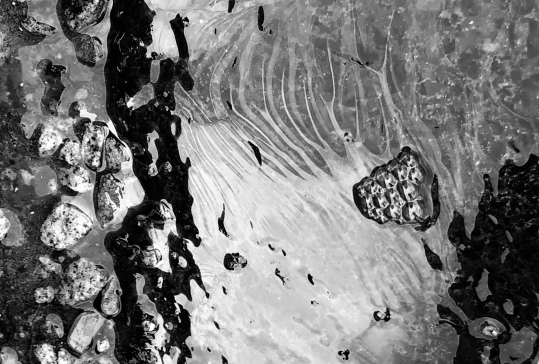
Let’s consider the sorts of situations in which we often observe echoes. The first memories elicited might be large rooms, large canyon structures, or other large spaces. It isn’t often discussed but even small rooms do produce echoes and reverberations. In smaller rooms the amount of time spanning between the source sound and the echo is much smaller, which might produce a different kind of effect compared to the more delayed response one gets when yelling into a large canyon, which often has half or more seconds between the source sound and the echo. It doesn’t seem to be the case that the span of time between echoes and source sounds is the only factor mediating the noticeability of echoes. The shorter spanning echoes would be more likely to stack on top of the source sound as it is occurring, producing more interactions than a delayed echo would.
So why wouldn’t we notice the echoes in smaller rooms?
This is where novelty comes into play. Consider the difference in noticeability of sensations that occurs when you try a new food versus when you eat the same food everyday for every meal. The food that you expose yourself to on a daily basis will produce a less sensitive taste experience compared to the food you are trying for the first time. Sexuality seems to follow a similar pattern of desensitization. Drug tolerance is another similar case. It seems likely that most kinds of qualia that are possible in life may produce desensitization through repetition. People have even found that staring at a field of view can cause objects to disappear. Novel experiences are the ones that have not yet been repeated. As a note, novel experiences won’t often be entirely novel but only particulate aspects of experiences will be novel while many other aspects of the experience will be old and familiar.
Check out this desensitization trick! Stare at the dot in the center.
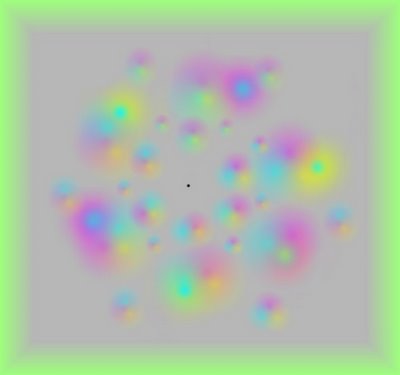
The sensitive experience of echoes might peak when the sound of the echo is foreign and you don’t yet know what is producing the extra sound. After many repetitions you may begin to associate the sound of the echoes with the source sound through conditioning. The qualia of both sounds merge, producing a more abstract and simplified combination. Any assumptions formed about the source sound are now automatically applied to the echo of the sound as well. They become a new sound that is unified. Once you hear the sound in a new environment with different reverberation qualities, there is a new kind of echo which doesn’t match the source sound or the source sound combined with the previous echoes.
Association
There is a distinct magical feeling about new environments. Imagine the first time you experienced the beach, or skyscrapers, or a giant cathedral. There is an almost spiritual essence of these experiences that scars our memories with their fresh exuberant qualia. We often times feel emotional when viewing a new metropolitan city or a gigantic mountain structure for the first time. As novelty-seekers we are driven to chase these euphoric and profoundly emotional experiences. These kinds of emotions and transcendent experiences of wonder might associate to the experience of echoes because the conditions in which we will register echoes as distinct auditory entities are the same environments that are novel and peculiar. Familiar environments lead us to seemingly filter the distinct echo sound, or at the very least associate it so strongly to the source sound that there is no distinction between the two, as if the echo is simply another limb or the tail of the entire auditory body.
So the state of awe and all of its’ colorful feelings get associated to this experience of echoes. We use echoes in music and auditory content to produce a sense of profoundness. The religious chorus, the sound of legendary speeches echoing across a large open space through megaphones, and other increasingly fantasy-oriented depictions of echoes are all highly emotional. Simply adding reverb to someone talking seems to increase the sense of profundity of that media content. It appears to increase the dramaticness and epicness of that content.
Increasing reverberation usually means increasing size of the room or space. It may seem that this alone produces the sense of awe, although there isn’t a clear reason behind this except that environments such as the Grand Canyon produce similar feelings and are also massive environments. There is a sense of being small in the universe that may accompany entering such large spaces. These assessments seem accurate but do not necessarily explain much. Massive environments like these are often novel in today’s world, as we are living in such confined spaces much of the time. A way to distinguish whether it is purely the massiveness of an environment or the novelty of an environment that produces these experiences of awe is to observe how the first time one enters a massive city produces a similar sense of grandness and awe, but for those who experience these cityscapes on a daily basis, this sense of epicness is often missing. Since our lives are often lived primarily in closed spaces (and sometimes massive cities), but not the Grand Canyon, there will often still be an experience of astonishment when a city-dweller enters the Grand Canyon, due to its’ novelty. The simple fact that we live most often in confined spaces should mean that these experiences of awe generally correlate with places that are massive, leading to these kind of associations with massive spaces and the awe state, but the massiveness may not be causing these feelings solely, since daily city-dwellers are not all being blown away by their daily life in the city.
Clouds and Aliens
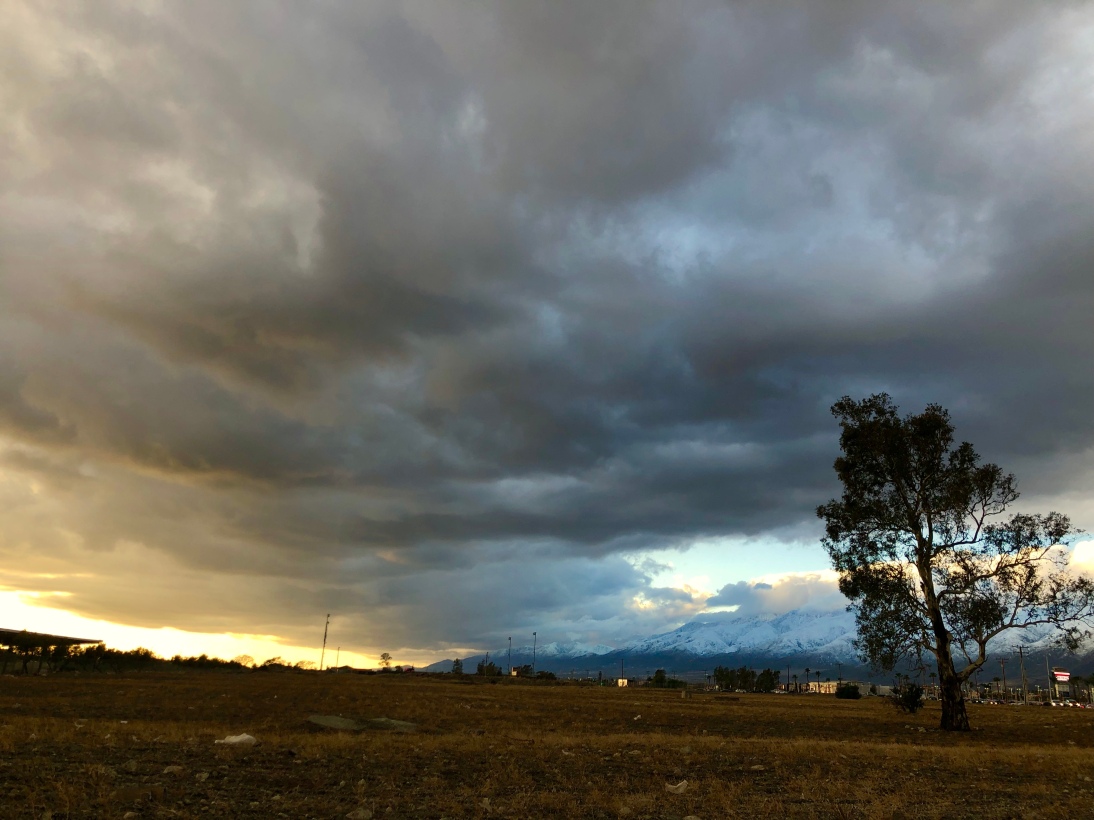
Clouds seem to be another emotionally stimulating phenomenon. This may be due to the way clouds constantly form novel structures in the sky. Clouds are almost perpetually novel, although we do find recurring patterns of cloud-types that we recognize, especially by adulthood. Cloud formations are often utilized in extraterrestrial films in order to enhance the strangeness. The Netflix series Stranger Things utilized this strategy often.
When we consume cannabis in sufficient enough doses that we reach alien and awe-like states, we often become extremely aware of the distinct qualia. The echoes in smaller rooms become prominent again along with many other interesting sensory effects. Sometimes it is very hard to put a finger on what is different, but it feels incredibly unique and seems to look different. The effect of cannabis could be described as induced unfamiliarity or alienization. On cannabis, much of the effects might be increased sensitivity of qualia and maybe even dis-association of qualia that were previously combined. This leads us into states in which we can notice many more individual components of our experience, producing experiences such as making music seem much more complex. If you compare the effects of cannabis in high doses and the experience of extremely novel environments I suspect many of you will notice similarity. Please let me know about your experiences in the comments!
Psychedelia and Novelty
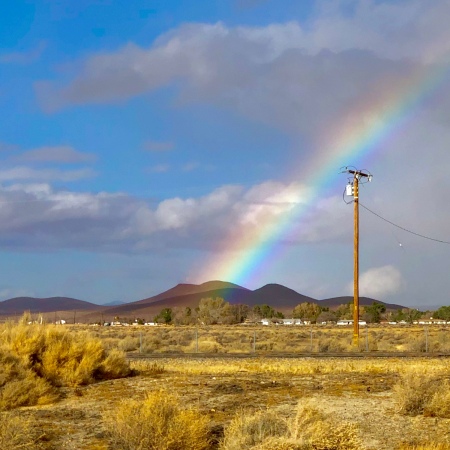
The state that this article is describing is the same state that psychedelics bring on. It seems that new experiences such as travel bring out this state of mind while sober. This state could be described as awe or wonder, in which the positivity or negativity is not an inherent element of the experience, but rather the extreme sense of astonishment, magic, and wow-ness is the core of the experience. This could be either horrifying or ecstatic. This state seems to be a worldview-building state of mind, perhaps by inducing experiences so impactful that they have the ability to override past experiences and leave stains in our mind.
Awe and wonder are this state of increased awareness. Pattern recognition may heighten in such states. Visually, the formation of recognized shapes and sensory information can help sculpt new and unfamiliar sights into an abstracted cartoon-like package that is understandable and simpler. During novel experiences our senses become the focal point of our subjective experience in order to maximize our ability to form meaning and understanding about the experience. Being stuck inside one’s head will only distract from navigating these foreign experiences so we find ourselves in the present moment entirely. These are the experiences where we learn things, the experiences we cannot navigate with habit or mindlessness. Our attention to the qualia of the novel is useful in associating stimuli together.
Associations may build our models of the world. Once models have formed, a lot of the heightened state of qualia becomes less important. The filtering of qualia seems to be based on its necessity to be experienced. In the case of observing echoes that follow a source sound, the echo follows so predictably and consistently that attention to the echo separately from the source sound is unnecessary, so they are molded into one. These kind of associations may underlie object recognition as well you could imagine. Where the edges and shapes of an object follow predictable visual transformation patterns in one’s field of view. Many particulate aspects of qualia are likely filtered due to their lack of necessity in object recognition. This trend could be repeated with each type of sensory modality, including motion perception, shape recognition, edge detection, and so on. Psychedelics may uncover these forgotten layers of perception, blowing our minds.
Childhood will be one of the rare periods in which we have a high ratio of novel to familiar qualia. Childhood is a time where life’s repetitions have not repeated enough to leave your perception cold and grey. There is often a magic ascribed to childhood. During our youth we dwell in a world that has not yet formed many structures. There are some researchers who claim the state induced by psychedelics is the same state of mind that an infant experiences. The world of a child is like a fantasy. Consider how the fantasy genre brings out our sense of awe. The artist often takes something ordinary, such as clouds, and then tweaks out these stimuli in a way that they seem like they couldn’t ever occur naturally. This contradicts our understanding of the world and brings on a state of (very mild) psychedelia. Surrealism exploits similar psychological exploits. We often use the term surreal to describe experiences that are highly novel, such as psychedelia and dreams.
In foreign unscripted circumstances it is useful to become profoundly aware of the familiar stimuli so that the new stimuli can associate to old stimuli and you can understand how the new experience fits with your prior perspective. Psychedelics have been found to increase reaction to the familiar, reducing the gap between the reaction we have between the familiar and the novel. This may allow one to powerfully associate and assimilate novel and familiar qualia together, letting one recombine the past with the present.
This brings us to,
Supernaturality
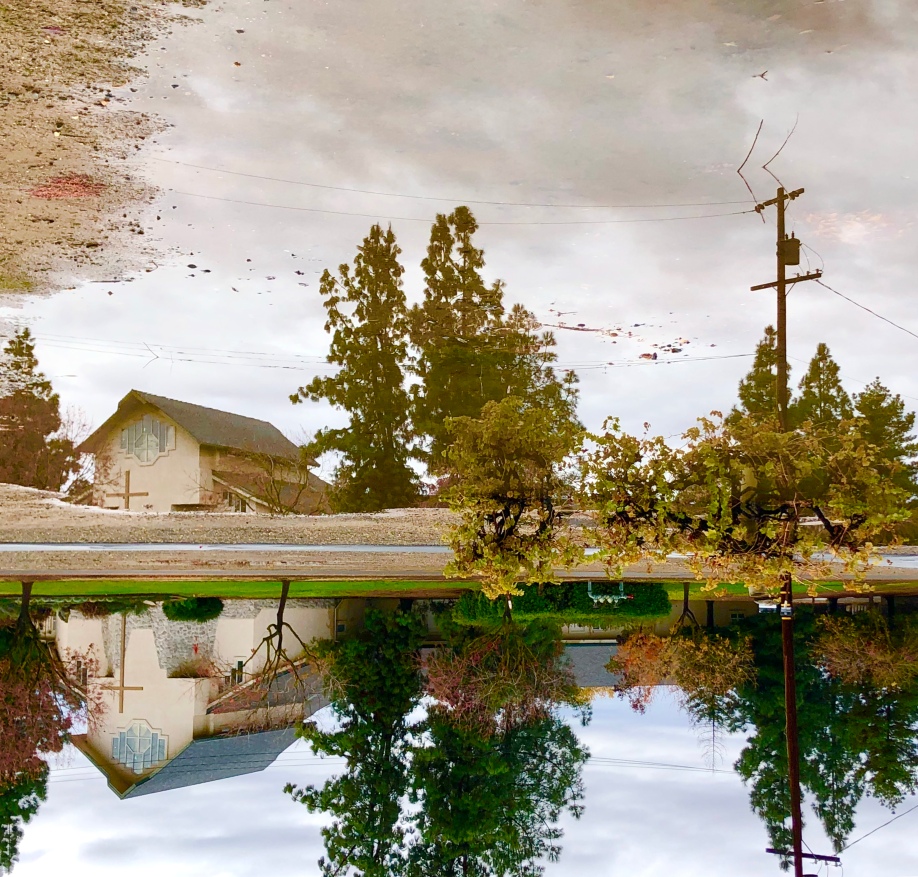
Let’s consider what religious experience really is. The supernatural is essentially an un-explained event that we often attribute mystical explanations to. A lack of explanation for an experience means that it is inherently novel. The novel is the new, the unexplored, the unexplained yet. Novelty and supernaturality go hand-in-hand. The religious simply attempt to explain the unexplained using their personal theory of supernaturality. The religious associate their familiar religious narrative with the new unexplained event.
Religious experience, novel environments, awe, large spaces, and echoes all share the heightened experience of new stimuli that haven’t yet become numbed through repetition. Religious music may have inadvertently exploits the emotional associations we have with echoes, utilizing chorus and ultra-massive sound halls to induce similar emotions of grandness and higher awareness. Trance music seems to take it even further, dramatizing the use of reverb to elicit intense euphoria and transcendent vibes.
The sky is a common theme in religious content. The heavens. This may be due to the historical inaccessibility of the sky that contained a sense of perpetual mysteriousness. On the ground we can touch and interact with many things while the sky has been entirely inaccessible for most of human existence.
This can explain why psychedelics are often said to induce religious or mystical experiences. The psychedelic state and the religious experience may both be a state in which we attempt to assimilate the novel experience with prior worldviews, changing worldviews to update with the new information.
If you liked this, follow me on
If you’d like to support my projects check out this page.
Very enjoyable article, thank you.
LikeLike